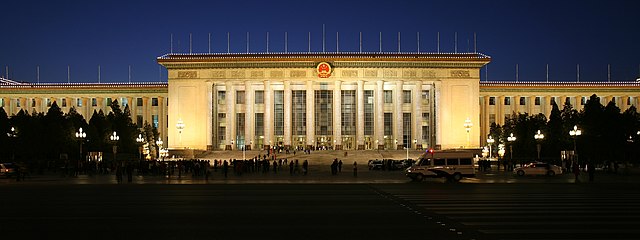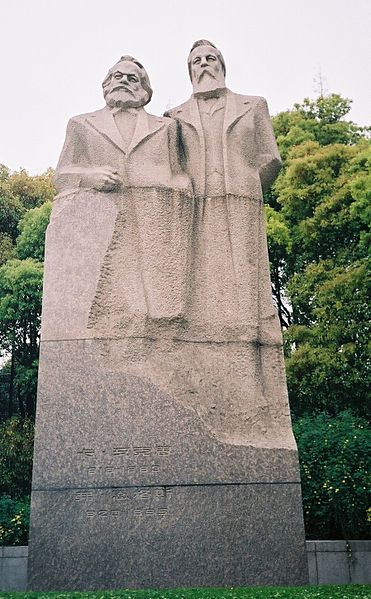Chinese People's Political Consultative Conference
The Chinese People's Political Consultative Conference (CPPCC) is a political advisory body in the People's Republic of China and a central part of the Chinese Communist Party (CCP)'s united front system. Its members advise and put proposals for political and social issues to government bodies. However, the CPPCC is a body without real legislative power. While consultation does take place, it is supervised and directed by the CCP.
Chinese People's Political Consultative Conference
The first Plenum of the Chinese People's Political Consultative Conference in 1949
Building of the National Committee of the Chinese People's Political Consultative Conference
The Chinese Communist Party (CCP), officially the Communist Party of China (CPC), is the founding and sole ruling party of the People's Republic of China (PRC). Under the leadership of Mao Zedong, the CCP emerged victorious in the Chinese Civil War against the Kuomintang. In 1949, Mao proclaimed the establishment of the People's Republic of China. Since then, the CCP has governed China and has had sole control over the People's Liberation Army (PLA). Successive leaders of the CCP have added their own theories to the party's constitution, which outlines the party's ideology, collectively referred to as socialism with Chinese characteristics. As of 2023, the CCP has more than 98 million members, making it the second largest political party by membership in the world after India's Bharatiya Janata Party.
Site of the first CCP Congress, in the former Shanghai French Concession
Chinese communists celebrate Joseph Stalin's birthday, 1949.
A temporary monument displayed in Changsha, Hunan Province, to celebrate the 100th anniversary of the CCP's founding
A monument dedicated to Karl Marx (left) and Friedrich Engels (right) in Shanghai







